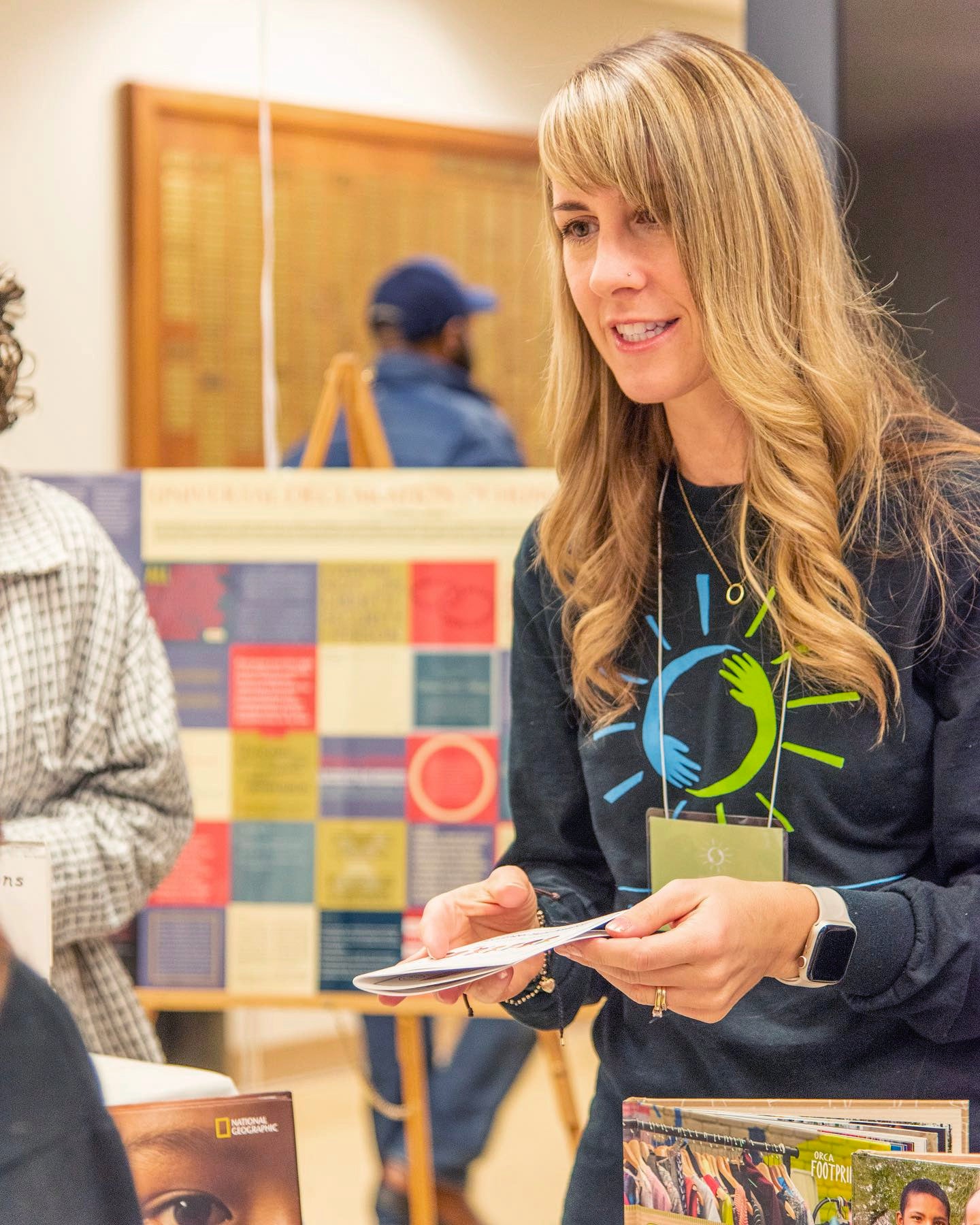
I found Angela Martin, director of community engagement for The Edible Classroom, at Oregon Family Farm Days. The familiar aromas of hot dogs and popcorn swirled around us, as did the sounds of excited children who – while they loved this special experience – were growing tired of the afternoon heat.
As families approached The Edible Classroom’s table display, Martin asked if they had heard of the organization. Many children nodded and proceeded to share their experiences: “Our class harvested lettuce and turnips!” I asked this little girl of about five years of age if she had liked the turnips. “Yes,” she responded, “I really did.” Another little boy shared that his school is also involved with The Edible Classroom; his favorite part? “The sunflowers because they got huge!”
At the core of The Edible Classroom’s ethos, Martin shared, is their goal that all children learn how to grow food, where their food comes from, and–ultimately–respect the Earth and our environment so that growing our food becomes a more sustainable practice.
Through The Edible Classroom’s partnership with local schools (primarily elementary), over seven to eight weeks in the fall and ten weeks in the spring, teachers come out to schools to work directly with students; these Edible Classroom teachers help establish gardens and bring a mobile kitchen to demonstrate how the crops they grow can be made into meals that we eat.
Martin shared that many kids choose to give up their recess to spend time caring for the garden—pulling weeds, watering the plants, harvesting the crops, and more. Currently, The Edible Classroom is operating in elementary schools in the School District of Lancaster, JP McCaskey High School, a few elementary schools in Penn Manor, and at the Colombia Hill Campus (where a 3,500 square-foot step garden has been designed for grades 7-12) and Park and Taylor schools also in Columbia School District.

With new PA STEELS (science, technology, engineering, environmental literacy, and sustainability) standards replacing previous science standards, demands for The Edible Classroom are quickly growing. As a non-profit, their goal is not necessarily just to meet those new standards, but to meet them while also instilling within participating students a sense of autonomy, fulfillment, and joy in learning.
The Edible Classroom also partners with many other local nonprofits, including Lancaster Compost, Homefields, and Wax Wing Eco Works. “You are constantly learning as a gardener, and we can learn from each other,” Martin said.
As participating students learn how to grow their own food and respect the work and process that goes into feeding all of us, The Edible Classroom’s hope is that students will then share their new knowledge with their families.
A few years ago, Celebrity Chef Jaime Oliver – in his series, Food Revolution – asked young children to identify a series of fruits and vegetables. They were unable to do so. The shock of this simple experiment led many school districts across the country to expand their education standards to include exactly what The Edible Classroom does: teach our children to be part of their environment by digging in the dirt.
How You Can Make A Difference?
At Gifts That Give Hope, we’re expanding beyond the annual Gift Fair to make meaningful giving possible all year long. Our online catalog highlights nonprofits from past fairs, making it easy to support causes you care about—for birthdays, holidays, and every special moment in between.
Interested in volunteering at the Fair?
Sign up now and save the date! Bring a friend to volunteer with you or plan to meet up before or after your shift for some extra fun. 💛


